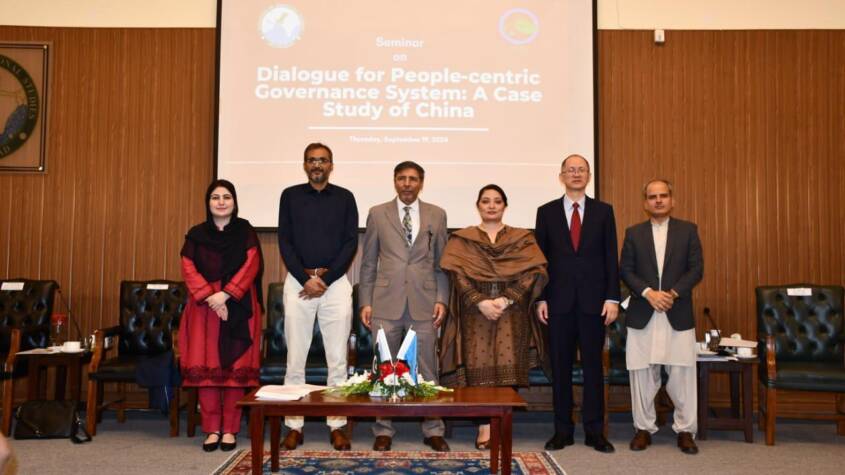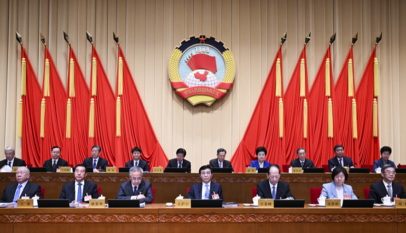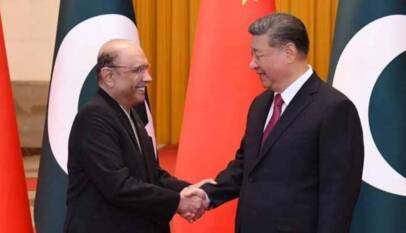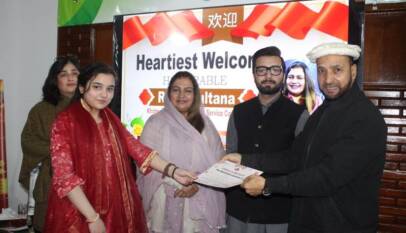China’s people-centric governance model offers lessons for Pakistan
Islamabad: China’s People-centric Governance System and how developing countries could learn from its successful experience was the subject of a very well attended seminar held at the Institute of Regional Studies (IRS).
The speakers included Miss Romina Khurshid Alam, SAPM and Chairperson of Pakistan-China Parliamentary Friendship Group as the Chief guest; Mr. Shi Yuanqiang, Deputy Ambassador of China, Ambassador Moin ul Haque former, Ambassador of Pakistan to China; Professor Zhou-Rong Professor at the Renmin University, Dr Syed Kaleem Imam, Former IG; Dr. Sajid Amin, Deputy Executive Director SDPI and Shakeel Ahmed Ramay of AIERD who moderated the session.
Ambassador Jauhar Saleem, President IRS, underscored that China, had focused on people-centric governance by adoption and implementation of polices responsive to the needs of people, leading the country to lift around 800 million from the poverty. He underlined that the purpose of governance was to manage the country’s economic and social resources effectively for the shared prosperity of all. China’s success can be attributed to systematic meritocracy, political stability, and interstate economic cooperation.
Ambassador Moin-ul-Haque highlighted that the Western media portrayed Chinese democracy as an authoritarian state; however, on the contrary, China was the largest democracy in the world. He elucidated that China’s governance system is based on the Confucius values of benevolence, wisdom, propriety and honesty in which the leader puts his people’s interests and well-being before his interests. The Ambassador noted that teaching ordinary farmers modern farming techniques of branding, marketing, and selling their products nationwide are testaments to the Chinese people-centric governance system.
Speaking on the occasion, Professor Zhou-Rong also elaborated the people-centric foundation of the Chinese government, underpinning its commitment to civil engagement and giving back power to the people. By maintaining close ties with Chinese citizens, the CPC aims to promote national development and continued advancement and social well-being.
Dr Syed Kaleem Imam highlighted the pillars of a people-centric government are rooted in transparent, efficient, open, and standard operating policies. He explained Pakistan’s progress in E-governance initiatives, such as NADRA, Citizen Portal which can help in improving governnace.
Dr. Sajid Amin mentioned that Pakistan could learn three lessons from China. The first and foremost is to prioritize the economy over politics. Secondly, regional disparities must be overcome. Thirdly, Pakistan must invest in skilled human capital building because people are assets, and assets without skills are useless.
Deputy ambassador Shi Yaunqiang, emphasized that the Chinese governance model seeks the utmost happiness for the Chinese people and the region and unites all people for shared prosperity and happiness. Rejuvenating the Chinese nation by bringing all groups together to work for nation development by adopting a people-centric approach, coupled with socialism with Chinese characteristics have brought tremendous benefits to the Chinese populace . He also highlighted the significance of China Pakistan Economic Corridor for the economic development of the peoples of the two countries.
The Chief Guest, SAPM Ms. Romina Khurshid Alam, who also chairs the Pakistan- China Parliamentary Friendship Group, while emphasising on people-centric governance stated that China presents a great example for the implementation of Sustainable Development Goals (SDGs). She felt that Pakistan can address its socio-economic problems if it can learn from China’s experience. Empowerment of people and women’s participation in economy was a balanced approach by China to development, which should be replicated in other developing countries. A people-centric approach was also vital for building regional cooperation.
China’s top political advisory body to hold annual session from March 4 to 10
ISLAMABAD, Mar 3 (APP): China’s Two Sessions, the annual gatherings of the National People…












